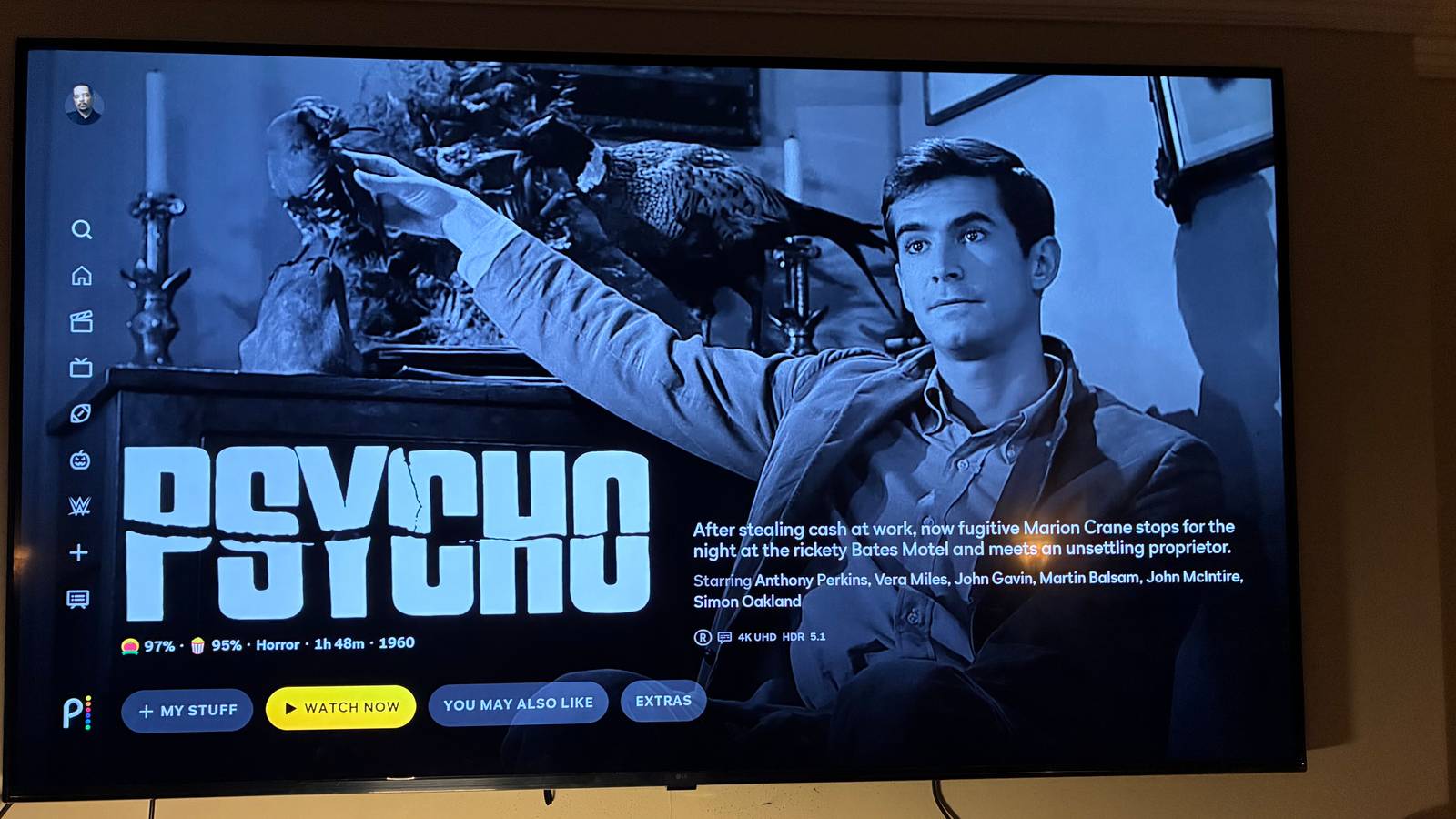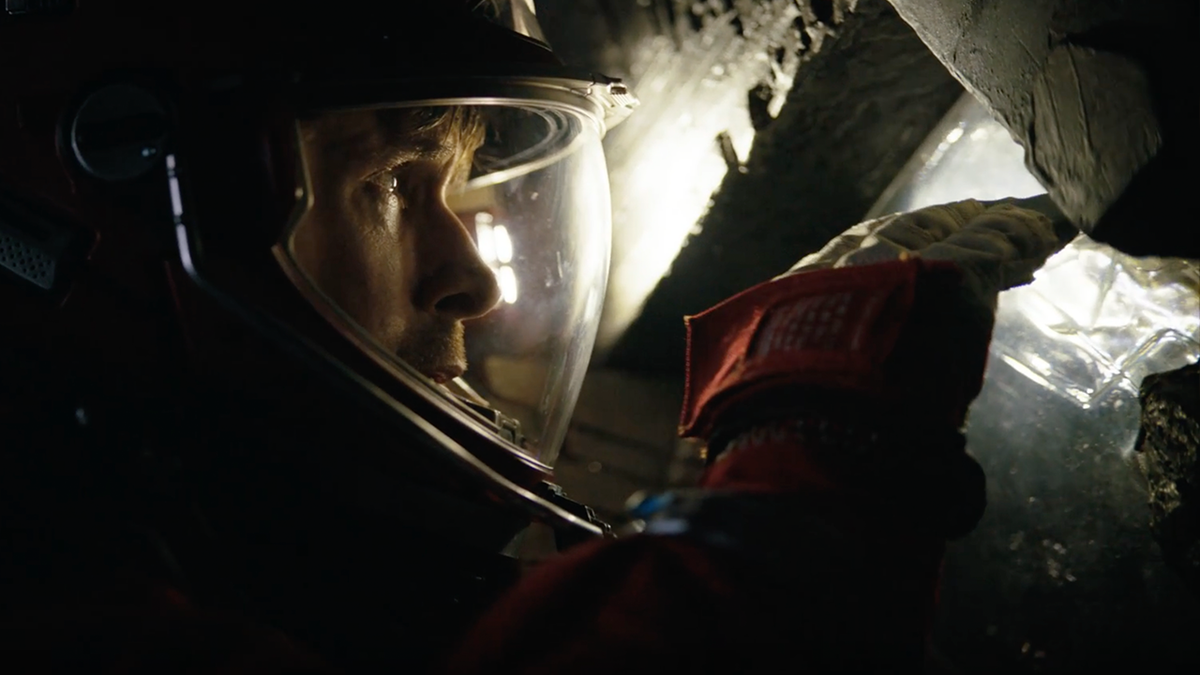Even if you’ve never seen one of his movies, you likely know the name Alfred Hitchcock. The guy directed nearly 50 movies over his long career, including touchstones that went on to influence the horror, action, mystery, and suspense genres. Whether you’re a Hitchcock superfan or just discovering him now, these five films show why he was known as the Master of Suspense, and why his movies are still watched and talked about today.
The Birds (1963)
Watch The Birds on Peacock (obviously)
The Birds is about a woman (Tippi Hedren) who visits a small seaside town only to find herself and everyone in it attacked by bloodthirsty birds. We’re never told why the birds are doing this, which adds to the suspense.
It’s not an exaggeration to call The Birds the first-ever zombie movie. Only a few years later, George Romero would formally invent the genre with Night of the Living Dead, which also featured huddled survivors barricading themselves inside houses against an inscrutable menace, this time, walking corpses instead of birds.
Night of the Living Dead went on to inspire every zombie story from The Walking Dead to Train to Busan to 28 Years Later, so we have a lot to thank The Birds for. I’d go further and say that pretty much any movie where there’s a mysterious force avenging itself upon humanity — from The Mist to Cloverfield to Jaws — owes something to The Birds.
On top of all that, The Birds remains a great watch to this day. The complete lack of music adds to the intensity, and the ambiguous ending ensures people keep coming back. Hitchcock knew that lasting suspense requires a little mystery.
North by Northwest (1959)
Watch North by Northwest on Tubi
North by Northwest finds Hitchcock in a much lighter mood, telling the story of an ad man (Cary Grant) who gets mistaken for a killer and goes on the lam. While he’s at it, he gets mixed up in a network of government spies, dastardly criminals, and homicidal cropdusters.
The plot of North by Northwest unfolds one twist at a time, with Grant’s Roger Thornhill discovering details as the audience does, or even a little later. That keeps the suspense high, but North by Northwest is just as important for how it shapes action-adventure movies, not to mention spy dramas. You can draw a direct line from North by Northwest to films in the Mission: Impossible, Kingsman, Bourne Identity, and James Bond series. You might even call Eva Marie Saint’s icy agent Eve Kendall the first Bond girl.
Hitchcock basically invented another genre with this one. But that’s probably too much to expect of him every time, right?
Rear Window (1954)
Watch on AMC+
Movies don’t get much more suspenseful than Rear Window. Jimmy Stewart plays a photojournalist who’s out of commission thanks to a broken leg, so he spends his time looking through his camera at the other people in his building. When he suspects one of them of committing a murder, he resolves to uncover the truth. The whole thing is shot from his apartment, which he can’t leave. So when the murderer finally comes knocking, there’s nowhere for him to go.
Rear Window has been remade and updated several times, including in 2007’s Disturbia, where Shia LaBeouf must stay home because he’s on house arrest, not because of a broken leg. Rear Window didn’t create a whole new genre like the last two films did, but it didn’t need to; it’s bigger than that. Much has been made about the theme of voyeurism in Rear Window, and how it’s a metaphor for the movies themselves. Whenever we watch a movie or a TV show, we’re looking through a camera at someone else, just like Jimmy Stewart does in Rear Window, peeking into their private life without them knowing. The screen is our rear window, and we’re all voyeurs. That’s why it feels so relevant and exciting even now.
Rear Window is also just really fun and tense, so you’re free to enjoy it with or without all the film theory stuff.
Rebecca (1940)
Watch Rebecca of Filmzie
Rebecca is a Gothic drama about a young woman (Joan Fontaine) who marries a wealthy widower (Laurence Olivier) and moves into his seaside mansion only to be haunted by the memory of his first wife, Rebecca. She’s not being literally haunted, mind you. Rebecca isn’t a ghost story, but it feels like one thanks to Hitchcock’s excellent command of tone and careful layering of mystery upon mystery. What really happened to Rebecca? Why is the housekeeper, Mrs. Danvers (Judith Anderson), so obsessed with her? The air is so thick with eerie intrigue that it makes you want to get into period dress and start speaking in a British accent.
I see Rebecca reflected in many modern movies, especially those of the spooky variety. The Others with Nicole Kidman obviously owes it a debt, but you can also see its influence in the popular The Haunting series on Netflix, or Guillermo del Toro’s 2015 film Crimson Peak.
Basically, if you’ve ever watched and enjoyed a movie set in a stately manor where something is amiss, you should give Rebecca a try.
Psycho (1960)
Watch Psycho on Peacock
This is the big one—the movie Alfred Hitchcock is best known for, which says something. Psycho follows a woman named Marion (Janet Leigh, mother of Jamie Lee Curtis) who steals some money from her job and then holes up in a strange roadside motel. After meeting creepy innkeeper Norman Bates (Anthony Perkins), Marion goes to take a shower and…well, even 65 years later, I think it’s unfair to spoil it for you.
Psycho was inspired by the story of American serial killer Ed Gein, who also inspired horror classics like The Texas Chainsaw Massacre and The Silence of the Lambs. Psycho played a big role in jump-starting America’s obsession with the serial killer, something that continues in full force today. Just the other week, Netflix released the third season of Monster, which focuses on Ed Gein and includes a whole tribute to Psycho.
Of all the movies on this list, I think Psycho has aged the least, because we love lurid stories about twisted killers as much now as we did then. And even all these years later, Psycho will still surprise people who haven’t seen it, because it takes narrative risks that most directors today don’t. The suspense feels up to the minute.
All of these movies are worth watching, and they only get better the second time. But if you’re in the mood for something lighter, why not try some so-bad-they’re-good cult classics,













